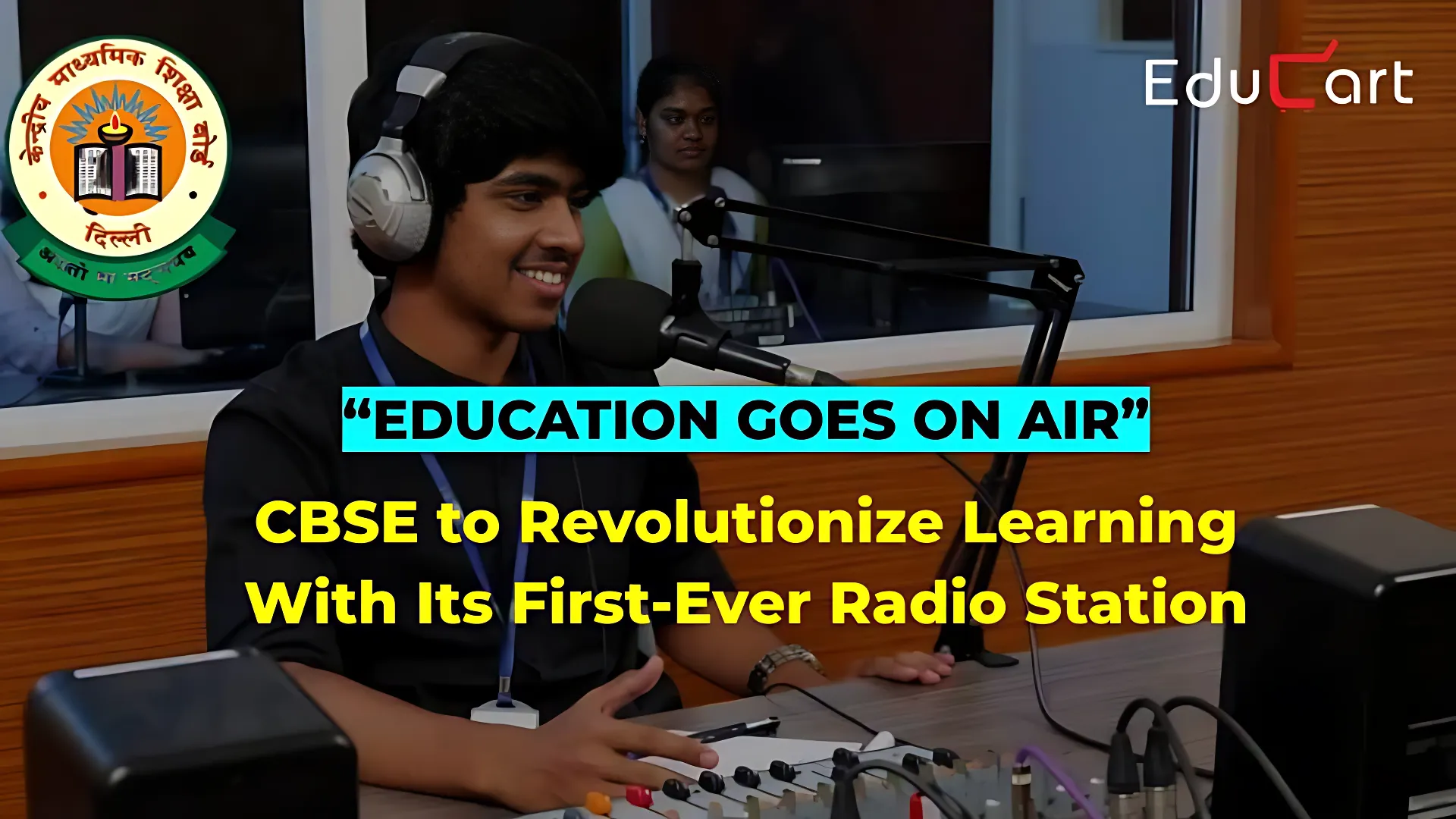
The Central Board of Secondary Education (CBSE) just dropped some exciting news that has the education world buzzing. They're setting up their very own community radio station , making them the first educational board in India to take this bold step. And honestly? It's about time.
Here's the scoop: CBSE's Governing Body recently gave the green light to establish a community radio station specifically designed for students, teachers, and anyone involved in education. They're currently in the process of applying for a broadcasting license, and over the next six months, we can expect some serious planning sessions with educators and experts to get this show on the road.
But this isn't just CBSE jumping on a random trend. They've got solid ground to stand on.
Remember Shiksha Vani? If you're a student, teacher, or parent dealing with CBSE, you've probably heard of this podcast platform. It's been quietly revolutionizing how educational content gets delivered, with over 400 episodes covering everything from NCERT curriculum topics to exam tips.
The app is pretty smart too, it has eight different sections for students, parents, teachers, and principals. No more digging through irrelevant content to find what you need. And here's the kicker: it's already part of the PM e-Vidya initiative, so this radio station idea isn't coming out of nowhere.
Great question! But here's where things get interesting. Radio still rules in many parts of India - especially rural areas where WiFi is more wishful thinking than reality.
During the COVID-19 lockdowns, community radio stations became lifelines for education. Take “Mann Deshi Tarang Vahini in Maharashtra” - they managed to keep kids learning when schools shut down, broadcasting lessons that aligned with school syllabus. Children could literally hear their own teachers on the radio.
The numbers don't lie: Radio penetration in rural India often beats internet connectivity. So while urban students are streaming videos, their rural counterparts might find radio more accessible and reliable.
If CBSE pulls this off, it could trigger something much bigger. Imagine other state boards following suit. Imagine a network of educational radio stations across India, each addressing local needs while maintaining national educational standards.
This could be particularly transformative for:
CBSE's community radio initiative is about democratizing education. In a country where education can still be a privilege rather than a right, initiatives like this help level the playing field.
While CBSE is keeping the exact programming details under wraps until they get their broadcasting license, we can expect some exciting content:
For Students:
For Teachers:
For Everyone Else:
The best part? They're planning to broadcast in regional languages and dialects. Finally, quality educational content that actually speaks your language – literally.
India currently has about 540 community radio stations, mostly run by educational institutions, NGOs, and non-profits. But none of them are operated directly by a major educational board like CBSE. This move isn't just about adding another radio station to the mix. It's about educational equity. It's about making sure a student in remote Rajasthan has access to the same quality content as someone in downtown Delhi.
Game Changer: Community radio has this unique ability to be both local and universal. It can address specific regional concerns while delivering standardized educational content. During emergencies, natural disasters, or situations like the pandemic, radio doesn't depend on internet infrastructure or electricity in the same way digital platforms do.
Of course, it's not going to be all smooth sailing. CBSE will need to navigate some interesting challenges:
But here's the thing - CBSE has already proven they can handle complex content delivery with Shiksha Vani. They understand their audience, and they've got the institutional backing to make this work.
Sure, we live in the age of AI and virtual reality, but sometimes the most revolutionary thing you can do is pick up the oldest tool in the communication toolkit and use it in a completely new way.
As CBSE prepares to go on air, they're not just launching a radio station – they're amplifying opportunity. And in a country as diverse and dynamic as India, that's exactly what we need.
Stay tuned, because the future of education is about to get a lot more interesting.